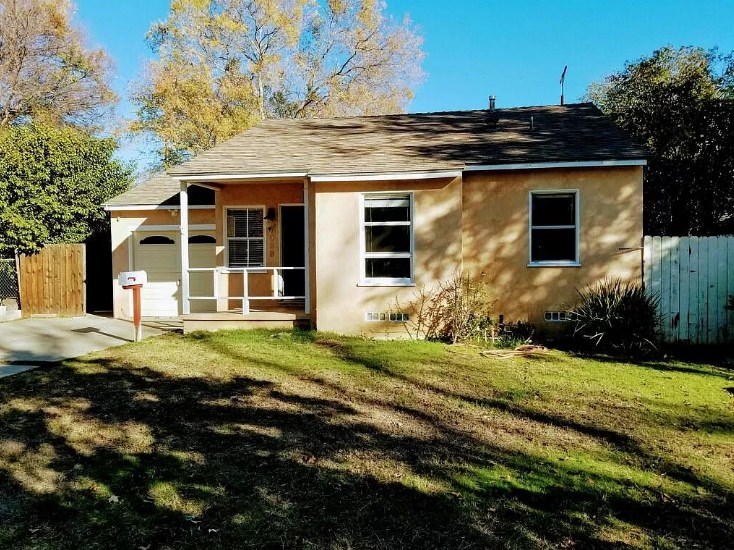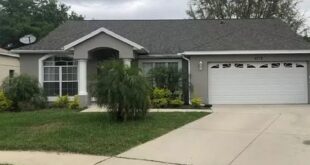 Private Owners Renting Houses Near Me – Floor Plans: 3 Beds, 1 Bath, $3,395/mo, 1,050 sqft. Location: 7038 Yarmouth Ave, Reseda, CA 91335. Contact Property: (818) 739-8722. Amenities; Unique: Cooling: Central Air, Pets: No Pets, Parking: Detached, Off Street, Laundry: Hookups, Building Type: Single Family Residence. Schools: Bertrand Avenue Elementary School, Reseda Senior High School, William Mulholland Middle School.
Private Owners Renting Houses Near Me – Floor Plans: 3 Beds, 1 Bath, $3,395/mo, 1,050 sqft. Location: 7038 Yarmouth Ave, Reseda, CA 91335. Contact Property: (818) 739-8722. Amenities; Unique: Cooling: Central Air, Pets: No Pets, Parking: Detached, Off Street, Laundry: Hookups, Building Type: Single Family Residence. Schools: Bertrand Avenue Elementary School, Reseda Senior High School, William Mulholland Middle School.
Introduction to Private Owners Renting Houses Near Me
Renting a house is a common option for individuals and families who are not ready to commit to buying a property. While many people turn to property management companies or landlords for their rental needs, there is another option that offers a more personalized experience – renting from private owners. Private owners are individuals who own and rent out their properties directly, without the involvement of a third-party management company. This article will explore the benefits of renting from private owners, how to find them near you, tips for renting from them, understanding the rental agreement, negotiating rent, dealing with maintenance and repairs, and resolving disputes.
Finding private owners renting houses near you is important for several reasons. Firstly, renting from private owners can provide a more personalized experience compared to dealing with property management companies or landlords. Private owners are often more invested in their properties and tenants, as they have a direct stake in the success of the rental relationship. Secondly, renting from private owners can offer more flexibility in lease terms and negotiations. Since private owners have more control over their properties, they may be more willing to accommodate specific needs or requests. Lastly, renting from private owners can potentially result in lower rent and fees. Private owners may not have the same overhead costs as property management companies, allowing them to offer more competitive prices.
Benefits of Renting from Private Owners
One of the main benefits of renting from private owners is the personalized attention and communication that tenants can expect. Unlike property management companies or landlords who may have multiple properties to manage, private owners often have fewer properties and can therefore dedicate more time and attention to each tenant. This means that tenants are more likely to receive prompt responses to their inquiries or concerns, and any issues that arise can be addressed more quickly.
Another advantage of renting from private owners is the flexibility in lease terms and negotiations. Private owners have the ability to customize lease agreements to better suit the needs of both parties. This can include negotiating the length of the lease, the amount of the security deposit, or even allowing for certain modifications to the property. This flexibility can be particularly beneficial for tenants who have specific requirements or preferences that may not be easily accommodated by larger property management companies.
Renting from private owners also has the potential for lower rent and fees. Private owners may not have the same overhead costs as property management companies, such as employee salaries or marketing expenses. As a result, they may be able to offer more competitive rental rates. Additionally, private owners may be more open to negotiating rent or fees, especially if they are looking for long-term tenants who will take good care of their property. This can be a significant advantage for tenants who are looking to save money on their monthly expenses.
Lastly, renting from private owners can provide an opportunity for long-term rental relationships. Since private owners are often more invested in their properties and tenants, they may be more inclined to establish a positive and mutually beneficial relationship. This can result in a more enjoyable renting experience, as tenants can feel more comfortable and secure knowing that their landlord is attentive and responsive. Furthermore, long-term rental relationships can provide stability and peace of mind, as tenants do not have to worry about constantly searching for new rental opportunities.
How to Find Private Owners Renting Houses Near Me
Finding private owners renting houses near you can be done through various methods. One of the most popular ways is by utilizing online resources and websites. There are numerous websites and platforms that connect landlords and tenants, allowing individuals to search for rental properties in their desired location. These websites often provide detailed information about the property, including contact information for the private owner. Some popular websites for finding private owners renting houses include Zillow, Craigslist, and Rent.com.
In addition to online resources, local classifieds and newspapers can also be valuable sources for finding private owners renting houses near you. Many private owners still prefer to advertise their rental properties through traditional methods, such as placing ads in local newspapers or posting flyers in community centers. These advertisements often include contact information for the private owner, making it easy for interested individuals to reach out and inquire about the property.
Word of mouth and networking can also be effective in finding private owners renting houses near you. By letting friends, family, and colleagues know that you are in search of a rental property, you may come across someone who knows a private owner looking for tenants. Additionally, joining local community groups or online forums can provide opportunities to connect with private owners who may not be actively advertising their properties.
Lastly, real estate agents and property managers can assist in finding private owners renting houses near you. While these professionals typically work with larger properties or complexes, they may have connections with private owners who are looking to rent out their properties. Real estate agents and property managers can help match tenants with suitable rental opportunities and facilitate the rental process.
Tips for Renting from Private Owners
Renting from private owners can be a positive experience if certain precautions and considerations are taken. Here are some tips to keep in mind when renting from private owners:
1. Conduct thorough research and background checks: Before entering into a rental agreement with a private owner, it is important to conduct thorough research and background checks. This includes researching the property, its history, and any potential issues or concerns. It is also advisable to run a background check on the private owner to ensure they have a good reputation and a history of responsible property management.
2. Ask questions and clarify expectations: Communication is key when renting from private owners. It is important to ask questions and clarify expectations before signing a lease agreement. This includes understanding the terms of the lease, any additional fees or charges, and the responsibilities of both parties. Clear communication can help prevent misunderstandings or disputes down the line.
3. Document all agreements and communications: It is essential to document all agreements and communications with the private owner. This includes keeping copies of the lease agreement, any written correspondence, and records of any repairs or maintenance requests. Having a paper trail can be helpful in case any disputes or issues arise during the rental period.
4. Build a positive relationship with the owner: Building a positive relationship with the private owner can go a long way in ensuring a smooth and enjoyable renting experience. This can be done by being respectful and responsible tenants, paying rent on time, and taking good care of the property. A positive relationship can also make it easier to address any concerns or issues that may arise during the rental period.
Understanding the Rental Agreement with Private Owners
When renting from private owners, it is important to thoroughly understand the rental agreement before signing. The rental agreement is a legally binding contract that outlines the rights and responsibilities of both the tenant and the private owner. Here are some key terms and clauses to look for in a rental agreement:
1. Lease term: The lease term refers to the length of time that the tenant will be renting the property. It is important to clarify the start and end dates of the lease, as well as any provisions for renewal or termination.
2. Rent amount and payment terms: The rental agreement should clearly state the amount of rent that is due, as well as the frequency of payment (e.g., monthly, quarterly). It should also outline any late fees or penalties for late payment.
3. Security deposit: The security deposit is a sum of money that is paid by the tenant at the beginning of the lease to cover any potential damages or unpaid rent. The rental agreement should specify the amount of the security deposit and any conditions for its return at the end of the lease.
4. Maintenance and repairs: The rental agreement should outline the responsibilities of both parties when it comes to maintenance and repairs. It should specify who is responsible for routine maintenance, as well as any repairs that may be necessary during the rental period.
5. Termination and eviction: The rental agreement should include provisions for termination and eviction, including the notice period required for both parties. It should also outline any conditions under which the lease can be terminated or the tenant can be evicted.
It is important to carefully review the rental agreement and seek legal advice if necessary. If there are any terms or clauses that are unclear or unfair, it may be possible to negotiate with the private owner to reach a more favorable agreement.
Pros and Cons of Renting from Private Owners
Renting from private owners has its advantages and disadvantages compared to renting from property management companies or landlords. Here are some of the pros and cons of renting from private owners:
Advantages:
– Personalized attention and communication: Private owners often have fewer properties to manage, allowing them to provide more personalized attention and communication to their tenants.
– Flexibility in lease terms and negotiations: Private owners have more control over their properties and can therefore offer more flexibility in lease terms and negotiations.
– Potential for lower rent and fees: Private owners may not have the same overhead costs as property management companies, allowing them to offer more competitive rental rates.
– Opportunity for long-term rental relationships: Private owners are often more invested in their properties and tenants, which can result in long-term rental relationships.
Disadvantages:
– Limited availability: Private owners may have fewer properties available for rent compared to property management companies or landlords.
– Lack of professional management: Private owners may not have the same level of professional management as property management companies, which can result in less efficient handling of repairs or maintenance issues.
– Limited resources and support: Private owners may not have the same resources or support systems in place as property management companies, which can make it more challenging to address certain issues or concerns.
– Potential for less legal protection: Private owners may not be as familiar with local rental laws and regulations, which can result in less legal protection for tenants.
When deciding whether to rent from private owners, it is important to weigh these pros and cons and consider your own preferences and priorities as a tenant.
How to Negotiate Rent with Private Owners
Rent is often one of the biggest expenses for tenants, so it is worth exploring options for negotiating rent with private owners. Here are some strategies for negotiating rent and fees:
1. Understand market rates and local trends: Before entering into negotiations, it is important to have a good understanding of market rates and local rental trends. This can be done by researching similar properties in the area and comparing their rental prices. Knowing the market value of the property can provide leverage when negotiating with the private owner.
2. Build a case for why you deserve a lower rent: When negotiating rent, it can be helpful to build a case for why you deserve a lower rent. This can include highlighting your positive rental history, stable income, or willingness to sign a longer lease. Providing evidence of your reliability and commitment as a tenant can make a strong case for why the private owner should consider lowering the rent.
3. Be prepared to compromise: Negotiations are often a give-and-take process, so it is important to be prepared to compromise. If the private owner is not willing to lower the rent, consider negotiating other terms such as the length of the lease or the inclusion of certain utilities or amenities.
4. Get any agreements in writing: Once an agreement has been reached, it is important to get it in writing. By doing this, future misunderstandings and conflicts may be avoided. The agreement should clearly outline the agreed-upon rent amount, any changes to the lease terms, and the duration of the agreement.
It is important to approach rent negotiations with professionalism and respect. Being prepared, reasonable, and open to compromise can increase the chances of reaching a mutually beneficial agreement with the private owner.
Maintenance and Repairs with Private Owners
When renting from private owners, it is important to understand the responsibilities of both parties when it comes to maintenance and repairs. Here are some key considerations:
1. Responsibilities of both parties: The rental agreement should clearly outline the responsibilities of both the tenant and the private owner when it comes to maintenance and repairs. Typically, tenants are responsible for routine maintenance, such as cleaning, changing light bulbs, and minor repairs. Private owners are usually responsible for major repairs or issues that are not caused by the tenant’s negligence.
2. Communication and documentation: When requesting repairs or reporting maintenance issues, it is important to communicate with the private owner in a timely and clear manner. This can be done in writing, such as through email or a maintenance request form. It is also advisable to document any communication or correspondence regarding repairs or maintenance, as this can be helpful in case any disputes arise.
3. Handling emergency repairs and situations: In the event of an emergency repair or situation, it is important to know how to handle it. The rental agreement should specify the procedure for reporting emergencies and who to contact. It is also advisable to have a list of emergency contacts readily available, such as the private owner’s contact information, local authorities, or emergency repair services.
It is important to establish clear expectations and procedures for maintenance and repairs with the private owner before signing the rental agreement. This can help prevent any misunderstandings or disputes during the rental period.
Dealing with Disputes with Private Owners
Disputes or conflicts may arise between tenants and private owners during the rental period. Here are some common disputes that may occur and strategies for resolving them:
1. Rent increases: If the private owner decides to increase the rent during the lease term, it is important to review the rental agreement and any applicable local laws or regulations. If the rent increase is not justified or exceeds legal limits, it may be possible to negotiate with the private owner or seek legal advice.
2. Repairs and maintenance: If there are issues with repairs or maintenance, it is important to communicate with the private owner in a clear and timely manner. Documenting all communication and correspondence can be helpful in case any disputes arise. If the private owner fails to address the repairs or maintenance issues, it may be necessary to seek legal advice or involve local authorities.
3. Security deposit disputes: If there are disagreements regarding the return of the security deposit at the end of the lease, it is important to review the rental agreement and any applicable local laws or regulations. If the private owner withholds a portion of the security deposit without valid reasons, it may be necessary to seek legal advice or take legal action.
When dealing with disputes, it is important to remain calm and professional. It can be helpful to seek mediation or legal advice if necessary, in order to find a fair and reasonable resolution.
 Houses for Rent Finding info about Houses for rent
Houses for Rent Finding info about Houses for rent




